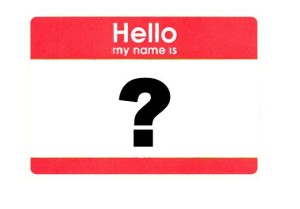 It turns out, quite a bit. Just look at all the excitement this week about the name of the new royal baby. More than $2.4MM+ was bet in the UK alone about what it would be. In this case, history and continuity into the future were at stake, but names are critical for all kinds of things. For example, recently, I read “Lean In” by Sheryl Sandberg and actually agreed with a lot she had to say. However, initially I was turned off by the title. It sounded trite or like some kind of cheer – “let’s all lean in!” – as if most of us who have been in the workforce for the past 30 years hadn’t been. I asked my colleagues and friends if they had read the book and what they thought about it. Surprisingly, a number were even more turned off by the name than I was. So a good book with some good points was going unread because of the choice of title.
It turns out, quite a bit. Just look at all the excitement this week about the name of the new royal baby. More than $2.4MM+ was bet in the UK alone about what it would be. In this case, history and continuity into the future were at stake, but names are critical for all kinds of things. For example, recently, I read “Lean In” by Sheryl Sandberg and actually agreed with a lot she had to say. However, initially I was turned off by the title. It sounded trite or like some kind of cheer – “let’s all lean in!” – as if most of us who have been in the workforce for the past 30 years hadn’t been. I asked my colleagues and friends if they had read the book and what they thought about it. Surprisingly, a number were even more turned off by the name than I was. So a good book with some good points was going unread because of the choice of title.
When you really think about it, a name SHOULD engage you, provoke you, make you feel a certain way or want to do something – hopefully all in a positive way. Often times however, I’m finding it has the exact opposite effect. We all make judgments about names based on our experiences and beliefs and it’s hard to get us to change those beliefs, even in the face of overwhelming evidence to the contrary. There are still those who believe our President is not an American because his middle name happens to be “Hussein.”
We all remember kids from grade school that had unfortunate names that were either seriously outdated, dorky or ridiculous sounding. It’s hard for kids to overcome an inappropriate name, but some do, based on sheer force of personality or character and the name becomes something they own, vs. something that owns them.
The same can be said of product naming strategies. It’s hard to pick a name that doesn’t already have a lot of associations and meanings attached to it. Many companies select a made up word or generic name and then build a brand around what they want it to mean. Nike is a good example of this.
A good brand strategy might help a bad name issue, or attach meaning to a name that doesn’t have any; however, it’s preferable to start with the right name in the first place.
Next time you have to name a product, a service, a strategy, a person or anything where it’s important for the name to convey a meaning or message, take some time to think about it. What feeling do you want people to have? What value do you want to convey? What do you want people to think? A name is so fundamental and foundational. It’s important to think it through in advance so you don’t start out with an uphill battle or negative associations you can’t overcome.
